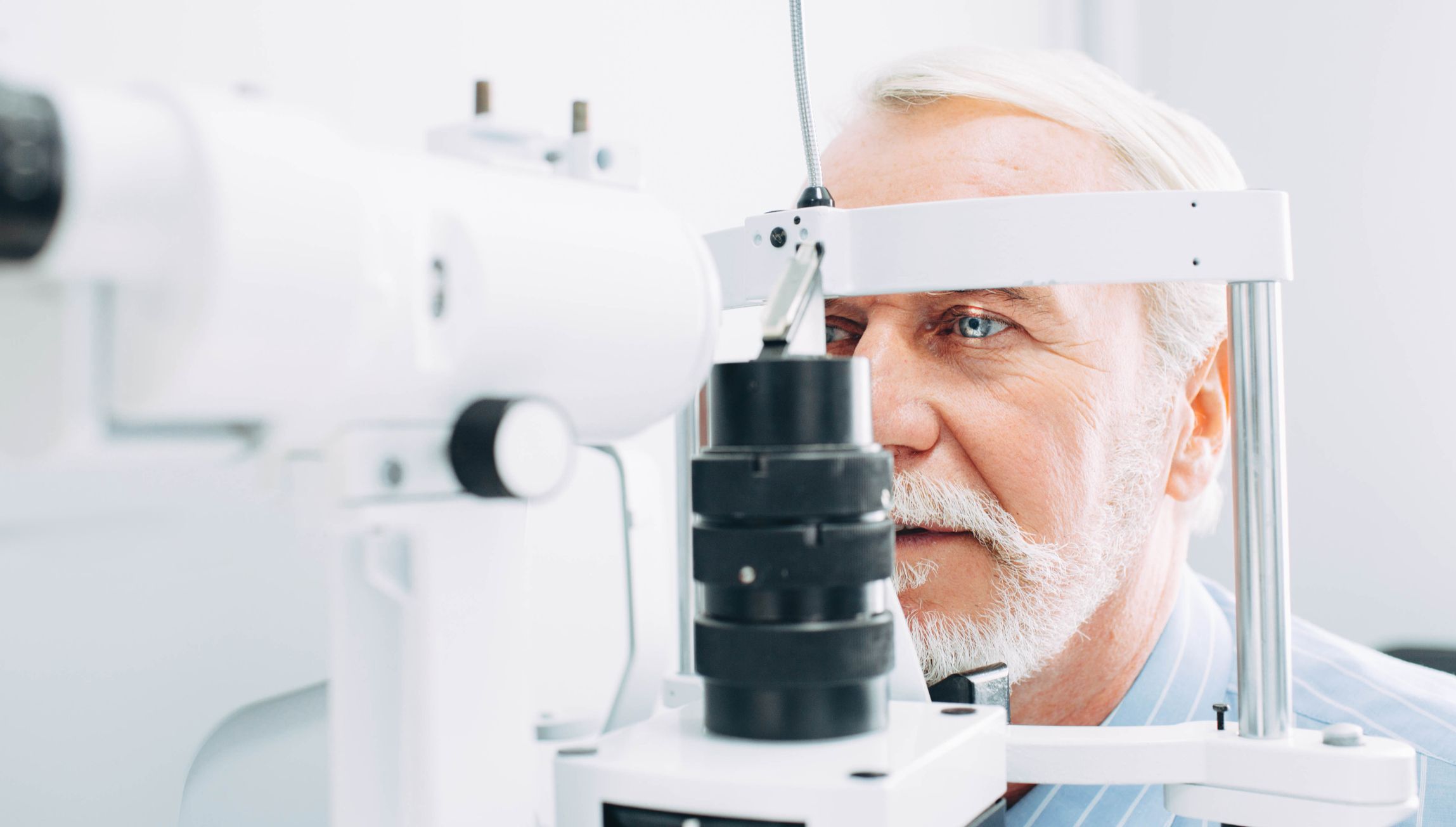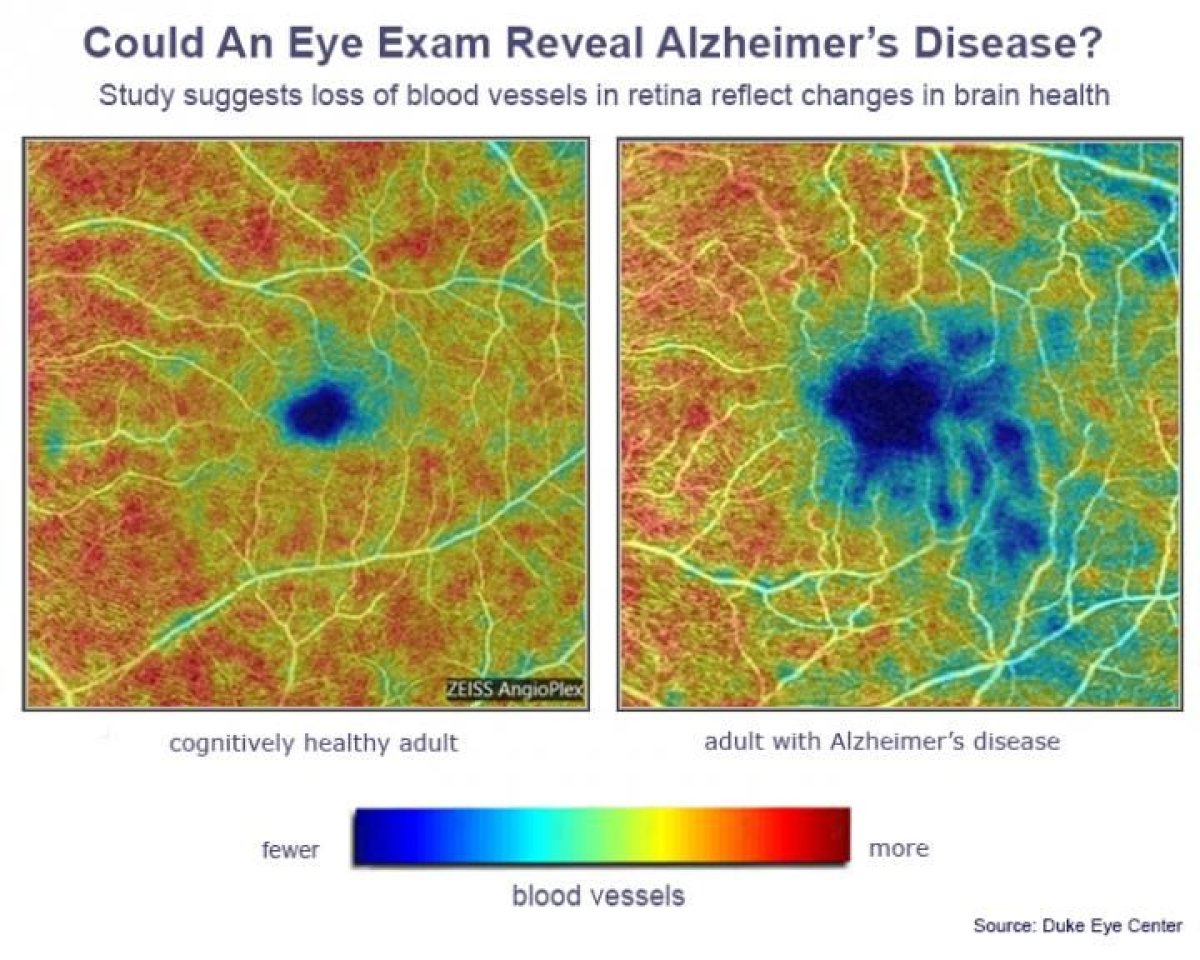
Alzheimer's disease could one day be diagnosed with a test assessing the blood vessels in the eye, researchers believe.
Scientists who studied more than 200 people determined that patients with the neurodegenerative disease had fewer blood vessels in the retina when compared with healthy participants. They published their findings in the journal Ophthalmology Retina.
The researchers analyzed tiny blood vessels in the retinas of 39 patients with Alzheimer's disease; 37 with dementia-precursor mild cognitive impairment; and 133 cognitively healthy people who acted as the control group. The diagnoses of the patients was confirmed by a neurologist and in cognitive tests.
Alzheimer's disease patients were found to have decreased retinal blood vessel density in the superficial capillary plexus of the retina, as well as decreased thickness in one of the retinal layers.
Looking for those changes could pave the way for new ways for diagnosing the disease, which currently affects an estimated 4.7 million Americans over the age of 65. That amounts to one new case identified every 68 seconds. Currently, Alzheimer's disease is diagnosed via a combination of memory and cognition tests, as well as brain scans and blood tests that detect signs associated with the condition.
"It's possible that these changes in blood vessel density in the retina could mirror what's going on in the tiny blood vessels in the brain, perhaps before we are able to detect any changes in cognition," Dr. Sharon Fekrat, a senior study author and a Duke ophthalmologist and retinal surgeon, said in a statement.
There is currently no cure for Alzheimer's disease, and scientists do not know its cause. Identifying the condition in an individual as soon as possible can help doctors to reverse and treat some symptoms.
However, Fekrat told Newsweek, "it will be years before these tests are ready for prime time, because the findings must be validated in larger patient populations. In addition, we need to be able to assess change over time or progression of disease using these tests."
And researchers can't rely on the results of this study alone to develop such tests. Dr. Dilraj Grewal, lead author of the study and an ophthalmologist and retinal surgeon at Duke University Medical Center, told Newsweek the study was limited in a number of ways, and the number of participants was relatively small.
In addition, the cross-sectional nature of the study—wherein participants were studied in a snapshot of time—meant changes couldn't be observed over a longer period. It also wasn't possible to prove the symptoms were caused by Alzheimer's.

In 2018, a separate team of researchers at Washington University in St. Louis, Missouri, similarly concluded the disease could be picked up in eye tests.
In their study, published in JAMA Ophthalmology, they assessed the eye vasculature of 32 adults without the disease and looked for abnormalities associated with Alzheimer's.
Dr. Doug Brown, chief policy and research officer at the Alzheimer's Society charity who was not involved in the study, commented at the time: "Testing whether changes in the eye, such as those in the retina, might be an early sign of dementia is a fascinating area of research. Yet it is simply too soon to hail this as a new way of diagnosing dementia."
Uncommon Knowledge
Newsweek is committed to challenging conventional wisdom and finding connections in the search for common ground.
Newsweek is committed to challenging conventional wisdom and finding connections in the search for common ground.
About the writer
Kashmira Gander is Deputy Science Editor at Newsweek. Her interests include health, gender, LGBTQIA+ issues, human rights, subcultures, music, and lifestyle. Her ... Read more
To read how Newsweek uses AI as a newsroom tool, Click here.








